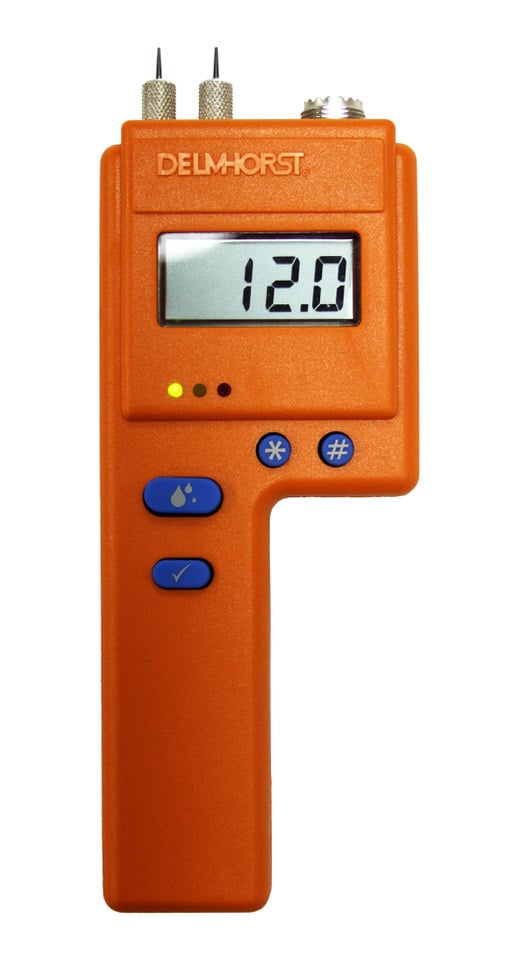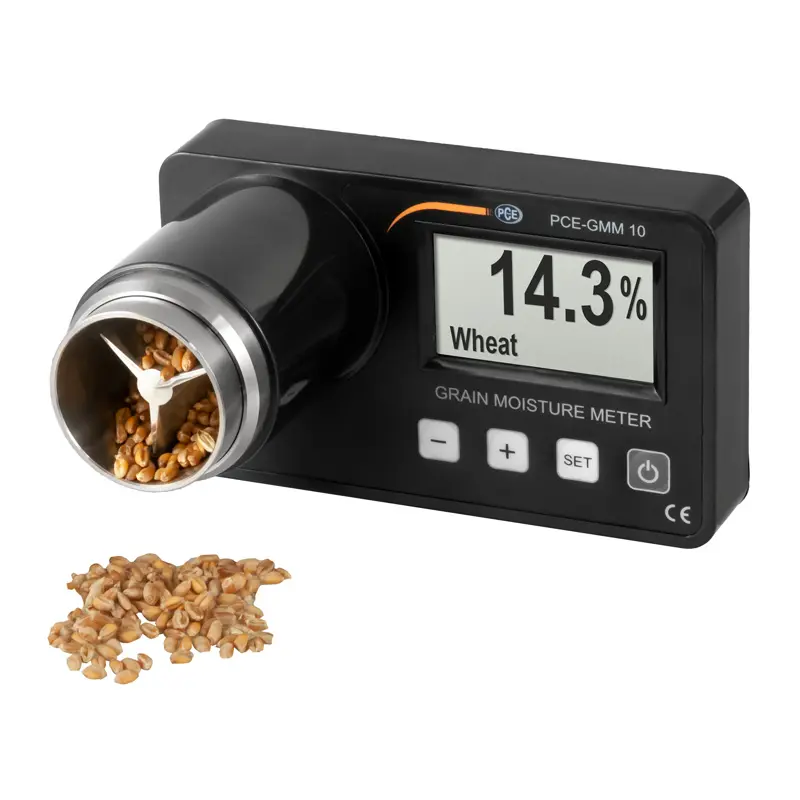How a Moisture Meter Can Help You Maintain Optimal Conditions in your house or Workplace
How a Moisture Meter Can Help You Maintain Optimal Conditions in your house or Workplace
Blog Article
The Ultimate Overview to Wetness Meters: A Comprehensive Overview and Exactly How They Can Conserve You Cash
Wetness meters serve as indispensable tools in discovering and checking moisture content in products, aiding in preventing pricey damages and guaranteeing the quality of items. Comprehending the subtleties of various kinds of wetness meters, their applications, and the potential cost-saving advantages they offer can be a game-changer for businesses and specialists alike.
Kinds of Dampness Meters
One usual type is the pin-type moisture meter, which measures the electrical resistance in between two pins inserted into a product. Pinless wetness meters, on the other hand, usage electro-magnetic sensor plates to scan a bigger area without causing damages to the product's surface.

Infrared dampness meters gauge the thermal homes of a material to establish its moisture material non-invasively, making them helpful for applications where pin or pinless meters might not be ideal. Recognizing the different types of dampness meters readily available can assist industries choose the most proper tool for their particular wetness dimension demands.

Advantages of Utilizing Dampness Meters
Dampness meters provide vital advantages in accurately examining and monitoring moisture levels in varied products and environments. One of the key advantages of utilizing wetness meters is the prevention of potential damages caused by excess moisture.
Additionally, utilizing dampness meters can lead to enhanced power efficiency. In farming settings, moisture meters play an important role in maximizing plant returns by allowing farmers to check soil dampness levels and make notified irrigation decisions.
Exactly How to Select the Right Wetness Meter
Selecting the suitable wetness meter entails considering vital elements such as material compatibility, dimension variety, and calibration accuracy. When selecting a moisture meter, it's necessary to make certain that the meter appropriates for the particular material you will be testing. Various materials have varying electric properties that can impact dampness analyses, so picking a meter developed for your product is vital for exact results. Furthermore, consider the measurement variety of the wetness meter. Make sure that the meter can spot wetness degrees within the variety required for your applications. Calibration precision is one more vital factor to remember. Choose a wetness meter with reputable calibration to ensure consistent and accurate readings. Some meters may need periodic calibration adjustments, so comprehending the calibration procedure is very important. By very carefully reviewing these aspects, you can pick a dampness meter that meets your demands and gives precise wetness measurements for your projects.
Proper Techniques for Moisture Meter Usage

Cost Financial Savings With Wetness Meter Applications
How can the strategic use of moisture meters result in considerable cost financial savings across different industries? Dampness meters play an essential role in price financial savings by avoiding prospective damage and making certain quality assurance in different markets. In the farming industry, dampness meters help in establishing the optimal time for harvesting plants, preventing excess or over-drying dampness that can impact the end product's high quality. This accurate surveillance assists farmers stay clear of unneeded losses and optimize their yield.
Similarly, in construction, moisture meters aid avoid costly problems by spotting wetness levels in building products, such as wood or concrete, which can result in architectural problems if not dealt with quickly. By determining problem areas beforehand, professionals can take corrective steps to prevent substantial repairs or substitutes, inevitably conserving time and money.
Moreover, in the food handling sector, wetness meters are crucial for keeping track of item quality and guaranteeing compliance with safety policies. By accurately gauging wetness web content in food, producers can prevent wasting, preserve freshness, and decrease waste, resulting in substantial price financial savings. Generally, the tactical application of wetness meters is a valuable financial investment that can bring about significant price decreases and enhanced performance across various markets.
Verdict
Finally, dampness meters are useful devices for detecting top article and measuring moisture degrees in various products. By making use of the ideal dampness meter and adhering to proper methods, users can properly avoid expensive problems created by excess wetness. Purchasing a high quality wetness meter can lead to substantial cost savings in the future by identifying prospective problems at an early stage and making it possible for timely remediation. Ultimately, wetness meters are vital instruments for keeping the stability and long life of products and structures.
Dampness meters serve as crucial tools in identifying and checking moisture web content in products, helping in preventing costly problems and ensuring the quality of items. Infrared moisture meters gauge the thermal homes of a product to establish its dampness web content non-invasively, making them valuable for applications where pin or pinless meters might not be appropriate.Wetness meters use important benefits in properly assessing and keeping track of dampness levels in diverse products and atmospheres. In agricultural setups, moisture meters play a crucial role in maximizing crop yields by making it possible for farmers to keep track of dirt dampness levels and make educated watering decisions.In verdict, wetness meters are valuable tools for detecting and measuring wetness levels in different products.
Report this page